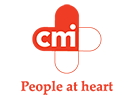Psychomotor therapy aims to support and aid an individual’s personal development. Psychomotor Therapy is a specialty that acts on the psyche by the mind-body-motor side (corporeal) to enable the person to improve his/her ability to adapt to the world. Psychomotor therapy proposes practices involving the body in its space, time and relationship, to get the person to know better his/her abilities and use them in the best way in his/her environment.
Psychomotor therapy is addressed to people with psychomotor disorders that affect their adaptation to the world in its perceptual-motor dimension, such as:
- Developmental delay
- Difficulties with fine and gross motors skills, balance, coordination
- Handwriting difficulties
- Dyspraxia, developmental coordination disorder (difficulties associated with movement and coordination) awkward or clumsy movements
- Tonic-emotional disorders
- Lack of concentration, hyperactivity disorder, and attention deficit (ADHD) impulsivity
- Psychomotor inhibition, difficulties with self-confidence
- Autism spectrum disorders
- Laterality and directionality problems (laterality not fixed, difficulty dealing with directions)
- Poor skills in spatial or time perception (problems in space or time orientation)
- Muscle tone disorders (difficulty regulating tone)
- Body scheme disorders etc.
CMI Psychomotor therapist
Our Psychomotor therapist first performs a psychomotor assessment to analyze the origin of the encountered difficulties. The psychomotor therapist can then propose sessions where the body will play a role in order to act on psychomotor development issues or psychomotor disorders, by means of relaxation techniques, body or plastic expression and by rhythmic, graphic, playing activities, play, balance and coordination. The psychomotor therapist uses for those purposes a variety of equipment like: hoops, balls, board games, graphic material, percussion instruments, modeling clay, puzzle and adapts them to the age and possibilities of each person.
Our Team
Gwennaëlle Lecocq is a psychomotor therapist who graduated in 2017 from the Institut Superieur de Rééducation
Psychomotrice of Paris and who has specialised in autism and sensory formations. She wishes to work closely with
families in support of their child as well as with adult patients.
Throughout her work experience, Gwennaëlle Lecocq has worked with a diverse group of patients, ranging from toddler
to elderly. She is weel-versed at helping those with tonic-emotional management difficulties, neurodevelopmental
disorders such as autism, motor disorders, learning disorders, attention deficit disorder/ attention deficit hyperactivity
disorder…
Gwennaëlle Lecocq can meet with patients for an assessment in order to target their needs and set up a personalised
project, with adapted care, if necessary.
Click on a doctor’s name to see profile
Qualifications
2020 : Formation Profil Sensoriel Dunn
2017 : Master’s Degree in Psychomotor Therapy – ISRP (Institut Supérieur de Rééducation Psychomotrice), Boulogne Billancourt, France
2010 : Diploma in Monitrice Éducatrice – IRTS à Loos, France
2008 : First year of Bachelor’s degree in Psychology, University Lille 3, Villeneuve d’Ascq, France
Experiences
Since 2021: Psychomotor Therapist, Centre Medical International (CMI), Ho Chi Minh City, Vietnam
2021: Psychomotor Therapist, Centre d’Accueil Thérapeutique à Temps Partiel (CATTP) /Centre Médico Psychologique (CMP), Saint Maurice Hospital, Choisy-Le-Roi, France
Patients: Children with ASD (Autism spectrum disorders) / ADHD (Attention Deficit Disorder with or without Hyperactivity / Oppositional Defiant Disorder / Psychotic Disharmony, from 2 to 12 years old (assessment medical, sensory profile, individual and group intervention).
2017 – 2021 : Psychomotor Therapist, Centre d’Accueil Thérapeutique à Temps Partiel (CATTP)/Centre Médico Psychologique (CMP), Hôpital de jour, Argenteuil, France
Patients: Neurodevelopmental disorders / Psychotic Disharmony, from 2 to 12 years old (assessment medical, sensory profile, individual and group intervention).
Specialities
● Psychomotor assessment: interview, tests, assessment
● Psychomotor individual care
● Psychomotor group care
● Parents support and guidance
● ASD: Autism Spectrum Disorder
● ADHD: Attention deficit disorder with or without hyperactivity
● Oppositional defiant disorder
● Neurodevelopmental disorders: Communication Disorders; Intellectual Disability (Intellectual Development Disorder); Autism Spectrum Disorder; specific learning disability (read, write and mathematical calculations); Motor disorders (Developmental Coordination Disorder (DCD), Stereotypic movement disorder, tics); attention-deficit/hyperactivity disorder; and others TND: prenatal alcohol exposure TND, …
Rules:
- In case of delay of the patient the consultation will end at the scheduled time.
- Cancellations 24 hours before the appointments are free of charge.
- 100% of the consultation fee will be charged for late cancellations or No show.
Additional Info
Psychomotor Therapy
Price for consultation 45 minutes session:
1.650.000VND
Price for initial check-up:
Conduct of a psychomotor assessment: package 7.900.000VND
• Step 1 (Consultation: 1.650.000VND): 45-minute interview to better understand the initial request by taking up the life story, the different stages of development, the difficulties encountered, etc.
• Step 2 (Two initial check-up: 2.300.000VND): observations, administration of tests and trials to assess the level of the person in the different psychomotor domains. (usually 2 one-hour sessions)
• Step 3 (Consultation: 1.650.000VND): after the analysis of the results will take place an oral restitution during a 45-minute interview. This allows, among other things, to explain and understand the results and also to submit a written report.
Depending on the results, several returns are possible:
• The steps can stop here if there is no need.
• It may be advisable to carry out other assessments (eg speech therapist, orthoptics, etc.).
The setting up of psychomotricity sessions could be envisaged.
• Please be informed that a medical prescription may be required by your insurance for assessments and rehabilitation.
• We advise you to consult a general practitioner beforehand to define the indications and the recommended rehabilitations and thus provide a prescription/ referral letter.
• No prescription can be provided after the sessions.


